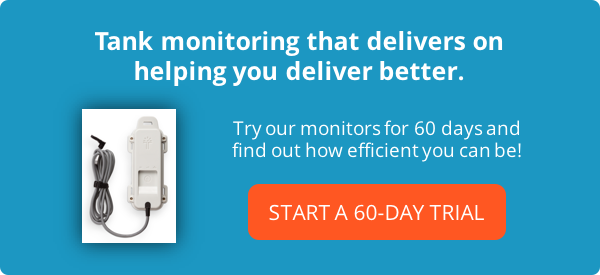At the 2017 NPGA Southeastern Convention, our co-founder, Amos Epstein presented an educational session for propane fuel suppliers. Will-call business creates challenges for delivery efficiency and the session looked at ways to convert to automatic/keep-full accounts and increase customer satisfaction. The presentation, Conquering Will-Call with Better Service, covered 4 main themes:
- The challenges with will-call business (routing efficiency, predictability);
- The types of will-call accounts (those that are “stuck” and those that “choose”);
- Building deeper loyalty bonds; and
- Will-call customer sentiment data (from NPS surveys).
You can download the entire presentation, Conquering Will-Call with Better Service, or read on for a quick overview.

1. Challenges with will-call business
Will-call business creates a handful of challenges for fuel suppliers. It is tough to route efficiently since it may be geographically spread out. That also means more customer support is needed to get trucks to the right place in time. By its very nature, will-call business is unpredictable, it’s impossible to know when the calls will come in. Finally, there’s the question if if the calls will ever come at all, no guarantees here.
2. Types of will-call accounts
Understanding the type of account is important to crafting the right solution. Some accounts get “stuck” as will-call. This is driven by what the fuel supplier needs. An example of this would be a variable use account, like 2nd homes, propane generators, or pool heaters. Other accounts “choose” to be will-call. This selection driven by what a customer needs, a very different scenario. These accounts are looking for more control, perhaps on timing or price of purchase or have a lack of faith in keep-full programs from prior runouts.
3. Building deeper loyalty bonds
Customers who “choose” will-call have tougher gaps to fill: Trust + Loyalty. The most simplistic ways to build loyalty are based on convenience or promotions. These are things like ease of access (800 number or online ordering), special price offers, or in-your-face advertising. They are easy to do but they also do not create deep bonds of loyalty.
Deeper loyalty requires authenticity from a fuel supplier, customers can see through shallow efforts easily. These bonds are based on superiority (a truly better service), a tribal connection (community tie-in), or ethical links (values-based). Consider strategies like tank monitoring or mobile apps (superior service) or customer appreciation events (tribal connection) or charity-profit sharing (ethical links).
4. Will-call customer sentiment data
You don’t have to take our word for it. Generac recently did a survey of propane consumers across the U.S. We asked consumers about their likelihood to recommend their fuel supplier to a neighbor in order to measure their Net Promoter Score (NPS), a common customer-sentiment measure. Consumers were 62% more likely to recommend their fuel provider if that provider includes a better customer-facing service such as mobile apps or real-time tank monitoring. Consumers’ scores for that service were nearly on par with what Amazon receives asking the same recommendation question.
 Shop
Shop
